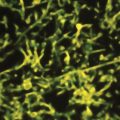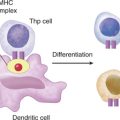CASE 42
Elizabeth is a 19-year-old girl with severe Crohn’s disease. In the course of this disease characterized by diarrhea, pain, loss of appetite, and weight loss, the associated inflammatory processes led to bowel obstruction that necessitated resection of a large portion of the intestine. Unfortunately, so much of the small intestine was removed that the remaining segment could no longer absorb the required nutrients. Consequently, Elizabeth began receiving total parenteral nutrition, which is intravenous feeding. As such, she was an ideal candidate for a pilot intestinal transplant program and had received a small intestinal transplant 1 month earlier. In this procedure, the surgeon transplants a segment of a cadaver’s small intestine into the patient. The patient was also prescribed a regimen of immunosuppressive drugs to overcome the rejection, but this also increases the risk of infection.
QUESTIONS FOR GROUP DISCUSSION
RECOMMENDED APPROACH
ETIOLOGY: CROHN’S DISEASE
Models for Unregulated Immune Response
Although no genetic susceptibility genes have been identified that would result in an unregulated immune response, two models have emerged. The first is that unregulated mucosal inflammatory response arises as a result of a predominance of inflammatory cytokines (e.g., IL-12, IFNγ, TNF); the other is that unregulated responses could occur if patients have a defect in the regulatory T cells that would normally dampen this response.







